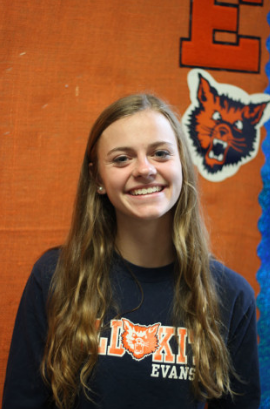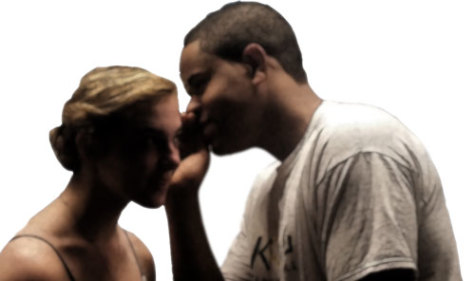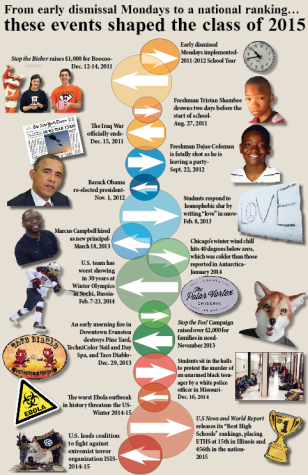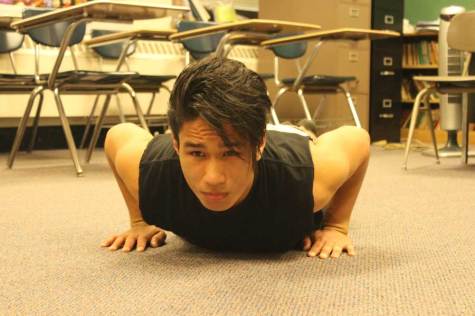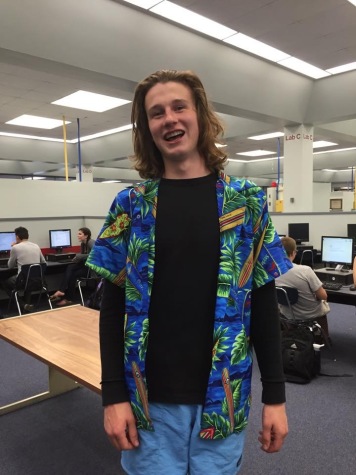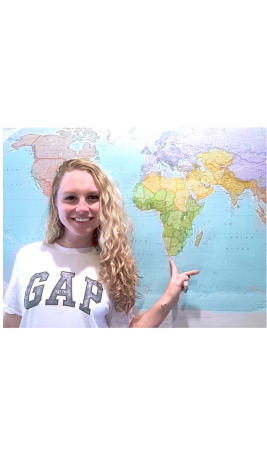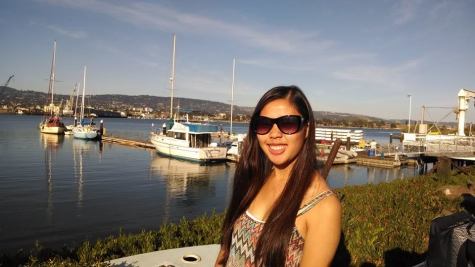Y.O.U. students compile stories about microaggression
Many people aren’t aware of the racist, sexist, or cultural biased comments they make on a daily basis, but a group of Y.O.U. students are trying to change this by exposing all types of microaggression that Evanston students have experienced and how it makes them feel.
“A microaggression is any kind of either verbal or structural slight or insult to a particular group of people. It can be intentional or unintentional,” states Director of the Y.O.U. Program Ebele Onyema, who is also in charge of the students responsible for the microaggression awareness project. She adds, “We want to fix these little slights where people think, ‘oh wait, you don’t fit in my box’, or ‘I don’t know which box to put you in.’”
To be a part of this campaign, all anyone has to do is take a picture of themselves holding a sign explaining either a microaggression they’ve experienced or their thoughts on microaggression and post it on social media with the hashtag #itooamawildkit.
To promote the images of people and their anger about microaggression, the Leadership Project team has created the hashtag #itooamawildkit, which links to Facebook, Instagram, and Twitter. Each picture posted includes this hashtag, and the students are working to create a large gallery of pictures from anyone who wants to post one and has included #itooamawildkit in their post.
“I’ve had people say things like ‘you dress nice for a black girl’, or ‘you talk white’,” states sophomore Gariecia Rose, who was one of the first people to take a picture with her feelings about microaggressions on a sign. “This microaggression campaign is meant to change that.”
In the first floor H-Hallway there is a big board dedicated to the Leadership Project and their anti microaggression portraits. So far they have created about 13 portraits, but this is just a start. “The whole purpose of the campaign is to go viral like an ice bucket challenge. We want the whole ETHS community to participate in this and upload their own pictures,” states Onyema.
““The long term goals are to have everyone at ETHS talking openly about the issue, and expressing their feelings without harsh criticism,” says sophomore Sam Blustein. He adds, “People get upset because microaggressions tend to stereotype a certain group of people often for something they have no control over.”
The idea for this movement to surface at ETHS came from a group of Y.O.U. students who are part of the Leadership Project, which was a program that met over the summer and talked about race-related topics. “The microaggression topic was just one of the many classes that we talked about and it was one that resignated with everyone in the room, and they had never heard the term before,” says Onyema.
According to bostonglobe.com, Harvard was the first school to expose microaggressions based on race on their campus by creating a similar project to the ETHS one that consisted of students taking pictures of themselves holding a sign explaining their feelings about microaggressions. This idea was developed by Harvard sophomore Kimiko Matsuda-Lawrence and spread extremely quickly. A link on Buzzfeed attracted millions of viewers only days after it was released, and Evanston students are hoping that their project will spread far and wide as well.
ETHS is not the only school to follow Harvard’s lead and attempt to expose microaggressions in their community. Oxford University in England, as well as many high schools across the nation, are taking similar pictures, all trying to expose the microaggressions that they experience on a daily basis.
Many perpetrators of microaggression do not know that what they are saying offends people, and that is part of the reason that the topic of microaggression has been brought to so much attention around the world. The purpose of the I, Too, Am a Wildkit campaign is to educate the community about the statements or questions that they ask that may be offensive.This campaign has just started in Evanston, but the creators hope to involve everyone and introduce the word microaggression to all students like it was introduced to them.
Your donation will support the student journalists of the Evanstonian. We are planning a big trip to the Journalism Educators Association conference in Philadelphia in November 2023, and any support will go towards making that trip a reality. Contributions will appear as a charge from SNOSite. Donations are NOT tax-deductible.

